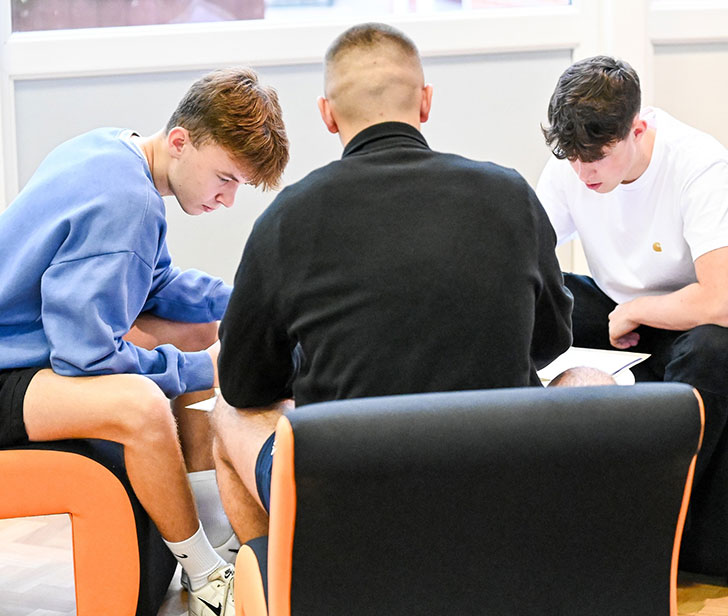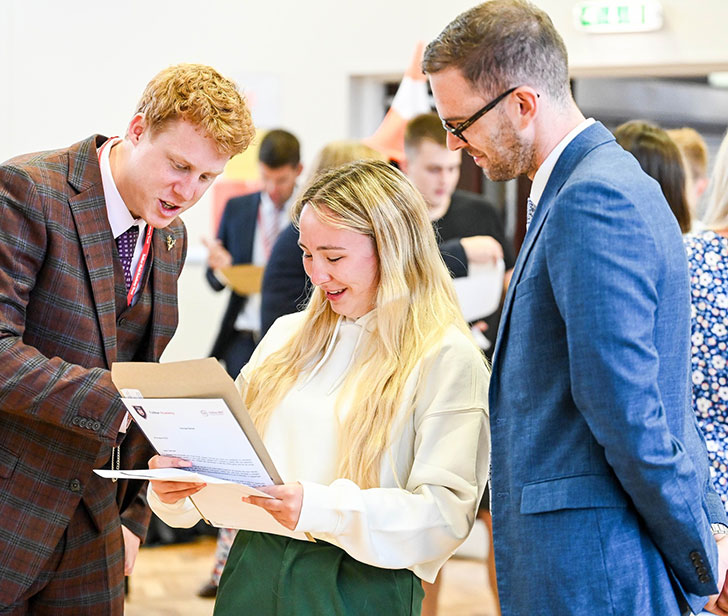Religious Education
Religious Education Key Stage 3
What can students do to develop their skills in this subject area?
- Enter the Spirited Arts competition - this runs in July every year and students will have the opportunity to enter.
- Create a revision guide for the unit of work that they are studying.
- Create a glossary of new vocabulary that they acquire during R.E. lessons.
- Identify news items that may have an ethical or religious link and bring these into classroom discussions.
- Identify links with concepts covered in R.E. to content covered in other subjects studied to embed cross curricular links.
- Link content to modern day or personal examples.
What wider reading can be completed to support the curriculum?
- Students could read and critically evaluate the presentation of religion within any national newspapers.
- Students could keep a 'Religion in the news' scrapbook - printing off or cutting out any stories they hear about that are related to religion.
The following texts may be of interest:
- The Chronicles of Narnia - C S Lewis.
- The Boy in the Striped Pyjamas - John Boyne.
- The Philosophy Files - Stephen Law.
- Read extracts from sacred texts such as The Bible, all of which can be accessed on the internet.
What websites could students visit to support the curriculum?
www.christianaid.org.uk
www.humanism.org.uk
www.churchofengland.org
www.reonline.org.uk
www.interfaith.org.uk
www.bbc.co.uk/bitesize/
Can television and film assist with supporting the curriculum?
Certain television programmes can be useful:
- The Big Questions - Sunday mornings on BBC One.
- See if you can identify moral/ethical/religious themes within programmes you watch such as soaps and dramas.
Watching films such as:
- Bruce Almighty/Evan Almighty.
- The Prince of Egypt.
- The Chronicles of Narnia.
- The Miracle Maker.
- The Boy in the Striped Pyjamas.
- The Golden Compass.
- Wall-E.
How can parents/carers help and what can be done at home?
- Discuss and debate current affairs, particularly issues related directly to religion.
- Discuss religious events/festivals that are taking place, e.g. discussing Christmas, Diwali, Eid.
- Encourage your son or daughter to explain their own views on a range of philosophical/ethical issues, but also encourage them to reflect on why others may not share these views.
- Visit places of religious interest, either locally (e.g. Grimsby Minster, Lincoln Cathedral) or further afield (Stonehenge, Canterbury Cathedral, Westminster Abbey, etc.).
- When on holiday, take note of religious customs/dress/places of worship - many popular destinations have a lot to offer in terms of deepening understanding of religion.
- Look for evidence of religion where you might not expect to find it, e.g. in an art gallery, a museum, on the football pitch, etc.
Religious Education Key Stage 4
What can students do to develop their skills in this subject area?
- Attend after Academy revision sessions.
- Challenge themselves by completing the additional homework projects available for each unit of work.
- Create a revision guide for the unit of work that they are studying.
- Create a glossary of new vocabulary that they acquire during R.E. lessons.
- Take a lead role in teaching key concepts and ideas to others during lessons.
- Develop their knowledge of religious scripture beyond the basics covered in lessons.
- Ask teachers for access to past exam papers/sample questions and answers.
What wider reading can be completed to support the curriculum?
- Students could read and critically evaluate the presentation of religion within any national newspapers.
- Students could keep a 'Religion in the News' scrapbook - printing off or cutting out any stories they hear about that are related to religion.
The following texts may be of interest:
- Sophie's World - Jostein Gaarder.
- The Life of Pi - Yann Martel.
- The Philosophy Files - Stephen Law.
- The Book Thief - Markus Zusak.
- Religious Scripture - e.g. The Bible, Hindu scripture/stories such as the Ramayana.
What websites could students visit to support the curriculum?
www.christianaid.org.uk
www.salvationarmy.org.uk
www.corrymeela.org
www.tearfund.org
www.cafod.org.uk
www.amnesty.org
www.bbc.co.uk/religion
www.humanism.org.uk
www.bbc.co.uk/education
www.religionfacts.com/hinduism
www.theguardian.com/world/religion
www.churchofengland.org
www.catholic-ew.org.uk
www.rsrevision.com
Can television and film assist with supporting the curriculum?
Certain television programmes can be useful:
- The Big Questions - Sunday mornings on BBC One.
- Watch documentaries related to ethical issues, e.g. those by Robert Winston, concerning IVF, Trevor MacDonald - Life on Death Row and Life and Death Row.
- Identify moral and ethical issues such as adultery, divorce, euthanasia, etc within soaps and dramas that you watch.
- Use BBC iPlayer to watch programmes and documentaries about religion.
Watching films such as:
- Selma.
- Gandhi.
- Jesus of Nazareth.
- Schindler's List.
- The Truman Show.
- Philadelphia.
- The Colour Purple.
- The Help.
- Hotel Rwanda.
- The Boy in the Striped Pyjamas.
- Gattaca.
- Million Dollar Baby.
- Philomena.
Additionally, follow people such as the Pope, the Archbishop of Canterbury, Richard Dawkins, Church of England, etc. on Twitter.
How can parents/carers help and what can be done at home?
- Discuss and debate current affairs, particularly issues related directly to religion, e.g. Meeting between Pope Francis and Donald Trump.
- Discuss religious events/festivals that are taking place, e.g. discussing Christmas, Diwali, Eid.
- Encourage your son or daughter to explain their own views on a range of philosophical/ethical issues, but also encourage them to reflect on why others may not share these views.
- Visit places of religious interest, either locally (e.g. Grimsby Minster, Lincoln Cathedral) or further afield.
- When on holiday, take note of religious customs/dress/places of worship - many popular destinations have a lot to offer in terms of deepening understanding of religion.
- Look for evidence of religion where you might not expect to find it, e.g. in an art gallery, a museum, on the football pitch, etc.


